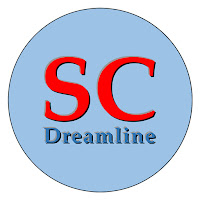Quản lý một doanh nghiệp siêu nhỏ
Managing the very small business, via Seth Godin,
-----
từ 2-9 người,
3 lựa chọn:
1/ nhóm những người ngang nhau
như kiểu ban nhạc Beatles, mỗi người giỏi một lĩnh vực, mỗi người một việc,
-> không bao giờ lớn được, cũng ok, hoạt động như kiểu hợp tác xã, các nghệ nhân thủ công...
2 điều để DN kiểu này hoạt động được:
(i) các thành viên thật sự giỏi, -> tuyển dụng và liên tục cải tiến là điều cần thiết,
(ii) 'sếp' thực ra chỉ là người điều phối, không phải là 'nhà độc tài bàn tay sắt',
2/ nhóm người cùng đồng hành
gồm những người cùng mục tiêu, cùng phương pháp, cùng nhận thức,
sếp chỉ cần nói, 'hãy làm những gì tự mình cho là tốt nhất' và công việc được thực hiện tốt,
nhóm được 'dẫn dắt' hơn là bị 'quản lý',
tin tốt là có thể hướng dẫn mọi người cùng thấy và chú tâm như ta,
tin xấu là mất thời gian và tốn công, nhiều khi quên mất là ta cần tìm 'bạn đồng hành', mà lại đi thuê lao động, rồi thất vọng vì người mình thuê được,
3/ nhóm lao động công nghiệp
như các doanh nghiệp khác, lao động là bánh răng trong doanh nghiệp, được thuê, được chỉ bảo và vâng lời,
là những việc có thể 'thuê ngoài' và rẻ, nhóm cần người quản lý - người đủ kiên nhẫn để hướng dẫn, chỉ dạy và đo lường KPIs,
điểm yếu là nhiều khi sếp bận những công việc mới, nghĩ ra sản phẩm mới, và giao thiệp xã hội, tìm mối làm ăn bên ngoài, mà bỏ bê công việc của doanh nghiệp,
chỉ mong được là người dẫn dắt 'nhóm bạn đồng hành', mà không phải vậy, nên chỉ thất vọng, và thất vọng, theo thời gian...
Bài trước: Tuyển dụng, tìm việc làm Biên tập viên tại Hà Nội
-----
How do you find, lead and manage employees in a tiny business (two to nine people)?
This is an organization that's bigger than a solo operation, but it almost certainly involves everyone reporting to the boss.
Consider three options:
A team of equals: This is an organization staffed with people who have particular skills, skills that you don't have. This is the Beatles. Or a three-person design firm in which each person is more skilled than the others in a specialty.
These organizations will never get big, and that's fine. They are cooperatives of artisans, and two things have to happen for them to work. First, team members have to be truly gifted, as the entire enterprise depends on the unique qualities of each individual. That means that hiring and ongoing improvement are essential. Second, the 'boss' has to be a coordinator, not an iron-fisted dictator.
The pitfall: Sometimes talented equals forget that the key to their job is coordination, which often means letting someone else lead. And sometimes talented people come to believe that being a prima donna makes one more talented.
Fellow travelers: This is a group of people with similar goals, approaches and perceptions. As a result, the boss can say, "use your best judgment" and the right thing happens. This group is led more than managed. The good news is that it's possible to train people to see and to care.
The pitfall: this isn't fast, easy or cheap. Businesses often fail to spend the time and money to recruit, hire and train fellow travelers, instead, hiring what they can and then being disappointed when they try to lead.
Industrialized employees: These are cogs in the system, people who want to be told what to do, who are hired and trained to obey. These are jobs that get outsourced or people who work cheap. This team needs a manager, a manager patient enough to instruct, teach and measure.
The pitfall: Sometimes the boss is also busy getting new business, inventing new products and generally engaged outside the organization. As a result, he is hoping that he's the leader of fellow travelers, but of course he never built that organization, so he's disappointed, over and over.
Tags: finance


Nếu bạn hoàn thành tới hơn 90% nhiệm vụ, thì người khác có thể hỗ trợ giúp bạn thành công một cách nhẹ nhàng như trở bàn tay, ngược lại, nếu bạn không làm bất kể việc gì, thần tiên cũng không cứu được bạn.